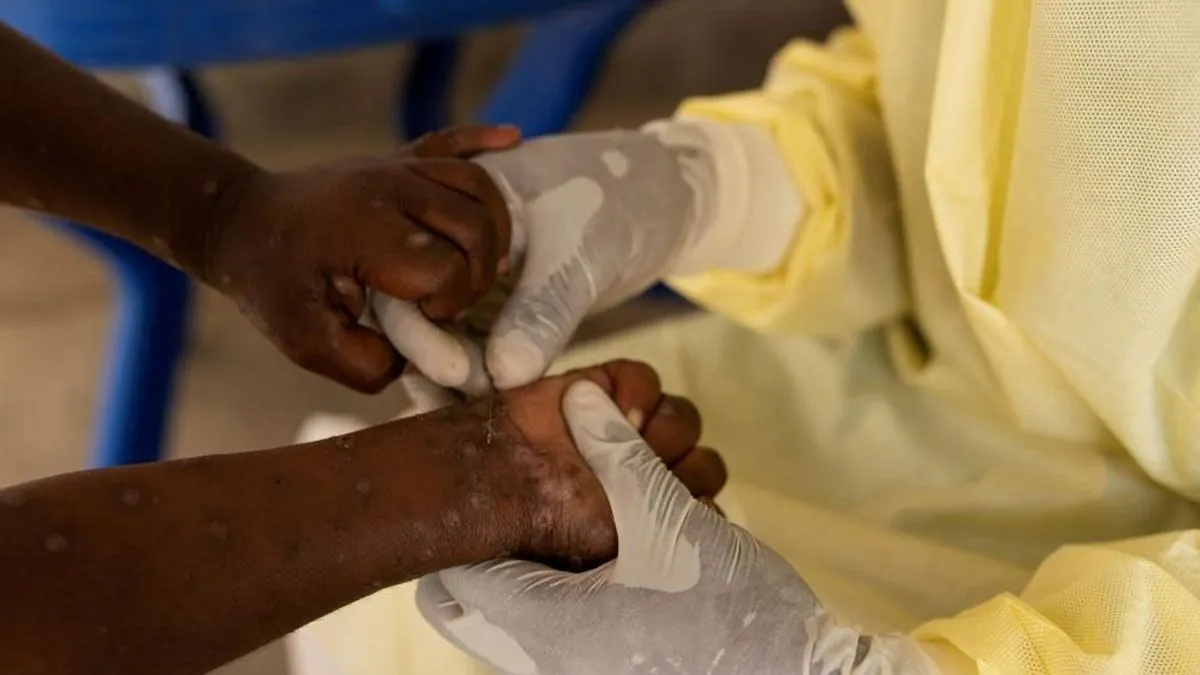Uganda Reports Rise in Mpox Cases with More Transmissible Strain
Uganda confirms 10 mpox infections, all with the more transmissible clade 1b strain. Health officials remain vigilant as the country borders DRC, where the current outbreak originated.

Uganda has reported an increase in mpox infections, with the total number of cases reaching 10. All patients have been identified with the clade 1b strain, known for its higher transmissibility between individuals.
Henry Kyobe, who leads the government's mpox response, stated that four patients remain in isolation while six have been treated and discharged. He expressed optimism about the situation, noting, "We are happy we have not recorded any fatality so far and we're confident we'll beat the outbreak." Over 200 tests have been conducted on suspected cases.
The outbreak's proximity to Uganda is of particular concern, as the country shares a border with the Democratic Republic of Congo (DRC), where the current outbreak originated in January 2023. The first two cases in Uganda were confirmed in July 2024, approximately 18 months after the DRC outbreak began.

Mpox, formerly known as monkeypox, was first discovered in 1958 in research monkeys. The disease is caused by the monkeypox virus, a member of the same family as smallpox. Symptoms typically include fever, headache, muscle aches, and a distinctive rash, lasting 2-4 weeks.
The World Health Organization (WHO) declared the recent outbreak a public health emergency in mid-August 2024, following the identification of the new variant. This declaration came about two years after the 2022-2023 mpox outbreak, which marked the first time the disease spread widely outside endemic regions.
"The recent identification of a more transmissible strain necessitates heightened global vigilance and coordinated response efforts."
Mpox transmission occurs through close physical contact, unlike respiratory viruses. The WHO recommends isolation for patients until all lesions have crusted over and fallen off. Environmental decontamination is crucial, as the virus can persist on surfaces for extended periods.
While usually mild, mpox can be fatal if left untreated. Historically, fatality rates have ranged from 0% to 11% in the general population. Vaccines developed for smallpox have shown effectiveness against mpox, providing a potential tool for outbreak control.
As Uganda continues to monitor the situation, health officials remain vigilant. The country's experience with previous outbreaks and its proximity to endemic regions underscore the importance of robust surveillance and rapid response measures in managing this evolving public health challenge.


































